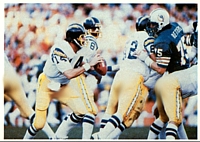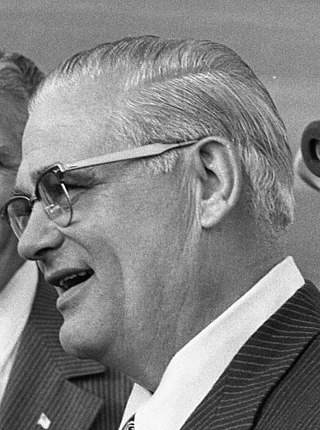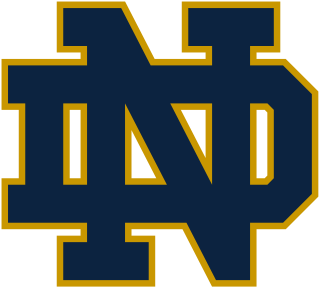
The Oklahoma–Texas football rivalry is a college football rivalry game between border rivals Texas and Oklahoma. The two teams first played each other in 1900, and the rivalry has been renewed annually since 1929 for a total of 119 games as of 2023. The rivalry is commonly referred to as the Red River Shootout, the Red River Rivalry, or the Red River Showdown. The name refers to the Red River, which forms part of the border between Oklahoma and Texas.

The National Football League playoffs for the 1981 season began on December 27, 1981. The postseason tournament concluded with the San Francisco 49ers defeating the Cincinnati Bengals in Super Bowl XVI, 26–21, on January 24, 1982, at the Pontiac Silverdome in Pontiac, Michigan.

The Epic in Miami was the National Football League AFC divisional playoff game between the San Diego Chargers and Miami Dolphins that took place on January 2, 1982 in the Miami Orange Bowl. The game, won by the Chargers in overtime, 41–38, is one of the most famous in National Football League lore because of the enormity of scoring, the conditions on the field, the performances of players on both teams, and the numerous records that were set.
Uwe Detlef Walter von Schamann is a former professional American football placekicker. He played for the Miami Dolphins of the National Football League (NFL), from 1979 to 1984.

The 2003 Tostitos Fiesta Bowl was a college football bowl game that was the designated Bowl Championship Series (BCS) National Championship Game for the 2002 NCAA Division I-A football season, taking place on January 3, 2003 at Sun Devil Stadium in Tempe, Arizona. The Ohio State Buckeyes, co-champions of the Big Ten Conference, defeated the heavily favored Miami Hurricanes, defending national champions and champions of the Big East Conference, in double overtime by a final score of 31 - 24. The game was only the second overtime result in either the BCS or its predecessors, the Bowl Alliance and Bowl Coalition, following the 2000 Orange Bowl between the Alabama Crimson Tide and the Michigan Wolverines. By virtue of their victory, Ohio State won its first consensus national title since 1968 and became the first team in college football history to finish a season with a 14-0 record.
The 1969 Ohio State vs. Michigan football game is considered to be one of the best-known games of the series, as well as one of the biggest upsets in college football history. The Buckeyes went into the game as the top-ranked team in the country, with a 22-game winning streak under the direction of head coach Woody Hayes. They were also defending national champions. The Wolverines went into the game under a new head coach, Bo Schembechler, who was trying to redefine a college football power that had fallen on hard times. Ohio State was playing for its second straight national title, while Michigan was playing for the Rose Bowl, and the championship of the Big Ten Conference was on the line. The game was witnessed by a (then) stadium-record crowd of 103,588 at Michigan Stadium in Ann Arbor, and began the highly combative stretch of the rivalry informally known as The Ten Year War.

The 1982 Miami Dolphins season was the team's seventeenth in the National Football League (NFL). The Dolphins were coming off an unexpected 11–4–1 1981 season and a devastating loss to the San Diego Chargers in the Divisional Round the previous season in a game dubbed the Epic in Miami. The team had clinched the 2 seed and were picked by many to reach the Super Bowl during the 1981 season. Because of the high number of picks to reach the Super Bowl the previous season, many more fans picked them to win it during the 1982 season. The Dolphins looked to improve on their 11–4–1 record from 1981. However, a players strike cancelled 7 of the team's 16 games. Because of this, the NFL schedule was shrunk to 9 games.
The 1979 Orange Bowl was the 45th edition of the college football bowl game, played at the Orange Bowl in Miami, Florida, on Monday, January 1. Part of the 1978–79 bowl game season, it matched the fourth-ranked Oklahoma Sooners and #6 Nebraska Cornhuskers, both of the Big Eight Conference.

The 1980 Michigan Wolverines football team was an American football team that represented the University of Michigan in the 1980 Big Ten Conference football season. In their 12th season under head coach Bo Schembechler, the Wolverines compiled a 10–2 record, won the Big Ten Conference championship, defeated Washington in the 1981 Rose Bowl, and outscored all opponents by a total of 322 to 129. The Rose Bowl victory was Schembechler's first in a bowl game, following seven bowl games losses. After falling out of the rankings for four weeks, the 1980 Wolverines ended up being ranked No. 4 in both the AP and UPI polls.

The 1977 Oklahoma Sooners football team represented the University of Oklahoma in the 1977 NCAA Division I football season. Oklahoma was a member of the Big Eight Conference and played its home games in Oklahoma Memorial Stadium, where it has played its home games since 1923. The team posted a 10–2 overall record and a 7–0 conference record to earn the Conference title under head coach Barry Switzer who took the helm in 1973. This was Switzer's fifth conference title and third undefeated conference record in five seasons.

The 2011 Michigan State Spartans football team competed on behalf of Michigan State University in the Legends Division of the Big Ten Conference during the 2011 NCAA Division I FBS football season. Head coach Mark Dantonio was in his fifth season with the Spartans. Michigan State played their home games at Spartan Stadium in East Lansing, Michigan. They finished the season 11–3, 7–1 in Big Ten play to be champions of the Legends Division. They represented the division in the inaugural Big Ten Championship Game where they lost to Leaders Division representative Wisconsin 39–42. They were invited to the Outback Bowl where they defeated Georgia 33–30 in three overtimes. Significantly, the Spartans were able to give 19 of their 20 true freshman redshirt years.

The 2011 Wisconsin Badgers football team represented the University of Wisconsin–Madison in the 2011 NCAA Division I FBS football season. The Badgers, led by sixth-year head coach Bret Bielema, are members of the Leaders Division of the Big Ten Conference and played their home games at Camp Randall Stadium. They finished the season 11–3, 7–2 in Big Ten play to be Leaders Division co–champions with Penn State. Due to their head-to-head win over Penn State, the Badgers represented the division in the inaugural Big Ten Championship Game where they defeated Legends Division champion Michigan State 42–39 to become Big Ten Champions. They were invited to the Rose Bowl for the second consecutive year where they were defeated by Oregon 38–45.
The 2011 Kansas State Wildcats football team represented Kansas State University in the 2011 NCAA Division I FBS football season. The Wildcats played their home games at Bill Snyder Family Football Stadium, in Manhattan, Kansas as they have done since 1968. It was the 116th season in school history. The Wildcats were led by head coach Bill Snyder in his 20th overall and third straight season since taking over his second tenure in 2009. They are a member of the Big 12 Conference. After winning all three non-conference games, the conference schedule began with a close victory at home over the Baylor Bears, and ended with a victory over the rival Iowa State Cyclones in the Farmageddon showdown. Kansas State made to a 7–0 start for first time since 1999. In the week 10 action, Kansas State earned a quadruple-overtime win over the Texas A&M Aggies. It was the first overtime game in school history since the 1998 Big 12 Championship Game, a game that also saw the Wildcats and Aggies play, which they lost 36–33 in double-overtime.

The 2011 Buffalo Bulls football team represented the University at Buffalo in the 2011 NCAA Division I FBS football season. The Bulls were led by second-year head coach Jeff Quinn played their home games at the University at Buffalo Stadium. They are a member of the East Division of the Mid-American Conference. They finished the season 3–9, 2–6 in MAC play to finish in sixth place in the East Division.

The Ten Year War was a series of college football games, played from 1969 to 1978, in the Michigan–Ohio State football rivalry that pitted coach Woody Hayes of the Ohio State Buckeyes against coach Bo Schembechler of the Michigan Wolverines. In most contests, the Big Ten conference championship and a trip to the Rose Bowl were at stake, and in some cases, a possible national championship.

The 2012 Notre Dame Fighting Irish football team represented the University of Notre Dame in the 2012 NCAA Division I FBS football season. The team was coached by Brian Kelly and played its home games at Notre Dame Stadium in South Bend, Indiana. They competed as an independent.

The 2013 Wisconsin Badgers football team represented the University of Wisconsin–Madison in the 2013 NCAA Division I FBS football season. The Badgers, led by first year head coach Gary Andersen, were members of the Leaders Division of the Big Ten Conference and played their home games at Camp Randall Stadium.
The 1976 Fiesta Bowl was the sixth edition of the college football bowl game, played at Sun Devil Stadium in Tempe, Arizona on Saturday, December 25. Part of the 1976–77 bowl game season, it matched the eighth-ranked Oklahoma Sooners of the Big Eight Conference and the unranked Wyoming Cowboys of the Western Athletic Conference (WAC). Heavily favored Oklahoma won in a rout, 41–7.
The 2015 St. Petersburg Bowl was a post-season college football bowl game between the UConn Huskies of the American Athletic Conference and the Marshall Thundering Herd of Conference USA, played on December 26, 2015 at Tropicana Field in St. Petersburg, Florida. The game was the final contest of the 2015 FBS football season for both teams. It ended in a 16–10 victory for Marshall.
The 1977 Big Ten Conference football season was the 82nd season of college football played by the member schools of the Big Ten Conference and was a part of the 1977 NCAA Division I football season.











